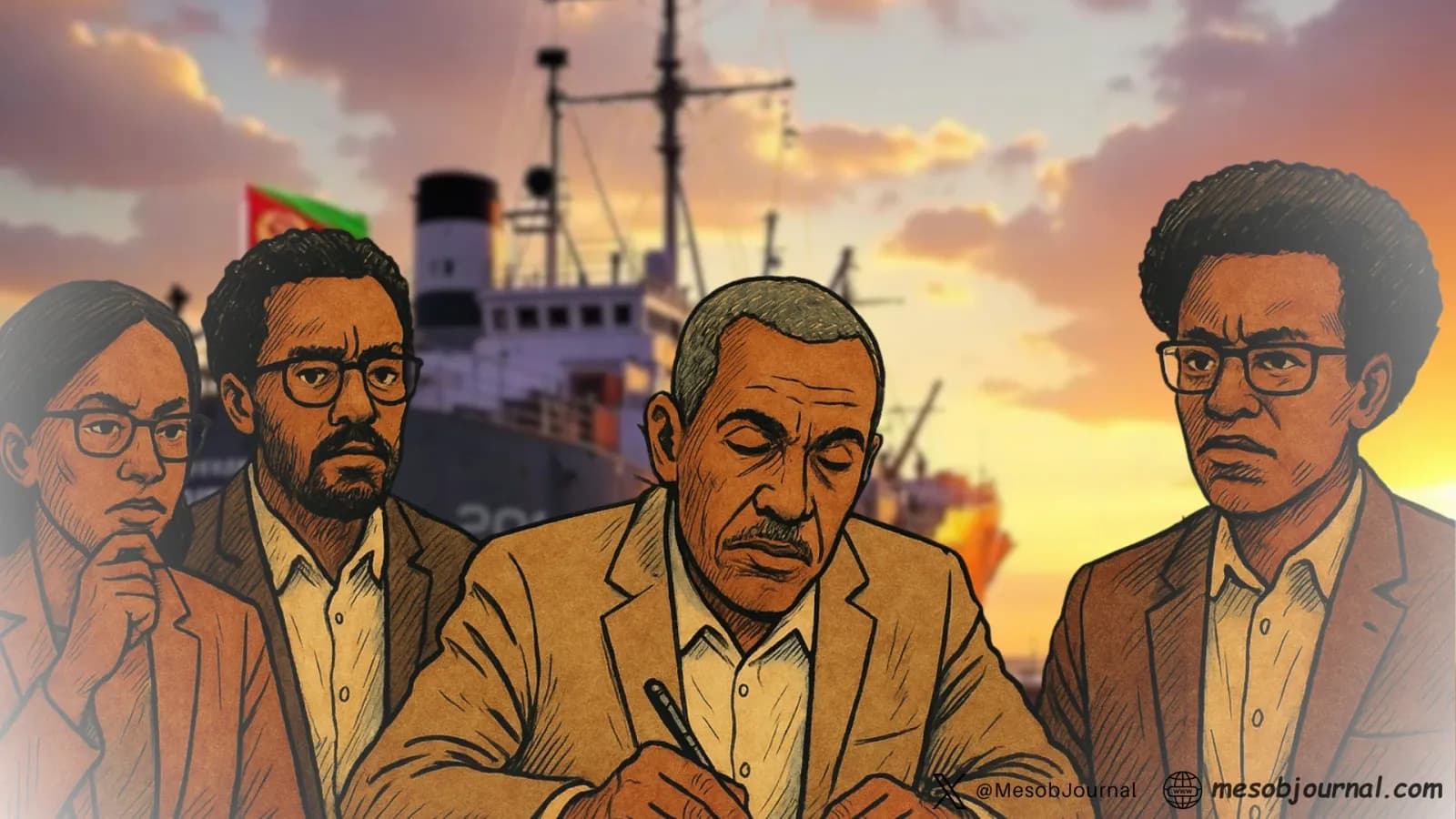The Responsibility of Intellectuals: A Reflection on Ethiopia’s Current Political Discourse

The role of intellectuals, as Noam Chomsky reminds us, is to speak truth to power and to hold leaders accountable for their words and actions. Unfortunately, certain segments of Ethiopia’s political elite appear to have lost sight of this fundamental responsibility.
Recently, Ethiopia’s Foreign Minister, Gedion Timotheos, submitted a letter to the United Nations accusing Eritrea of failing to respect Ethiopia’s territorial integrity. This assertion deserves critical examination in light of both recent political developments and Ethiopia’s own official rhetoric.
1. Ethiopia’s Stated Aspirations for Sea Access
It is worth recalling that Prime Minister Abiy Ahmed has publicly and repeatedly emphasized Ethiopia’s desire for access to the Red Sea, suggesting that this could be pursued “either diplomatically or, if necessary, by force.”
Such statements clearly imply the possibility of military confrontation with Eritrea. To threaten the sovereignty of a neighboring state in pursuit of territorial or maritime ambitions is, by any objective standard, a violation of the principle of territorial integrity.
Against this backdrop, it seems contradictory for Ethiopia to accuse Eritrea of disregarding Ethiopia’s borders, while its own leadership openly contemplates expansionist policies.
2. Domestic Narratives of Expansionism
Beyond official political discourse, troubling cultural narratives have also emerged. For example, a recently released Oromo song by Gossaye and his collaborator promotes expansionist ideals, envisioning control over territories belonging to Eritrea, Djibouti, Sudan, Kenya, Tigray, and Amhara in order to establish a Cushitic state with direct access to the sea.
While artistic expression cannot be equated with government policy, such messaging contributes to a broader climate of irredentism and undermines the very notion of mutual respect for territorial sovereignty.
3. The Ethical Responsibility of Leaders and Intellectuals
The intellectual vocation requires honesty, critical engagement, and a commitment to peace. To propagate misleading claims or to frame one’s geopolitical ambitions as defensive measures contradicts both ethical and intellectual integrity.
War, history has shown us repeatedly, is profoundly destructive—not only to nations but to families and individuals.
This is not an abstract point. My own son was severely wounded in the recent Tigray war and now lives with permanent paralysis. His suffering, along with that of countless others in Eritrea and Ethiopia, is a stark reminder of the human cost of reckless leadership and militaristic rhetoric.
4. A Call for Responsibility and Restraint
I therefore call upon Ethiopia’s leadership, particularly Prime Minister Abiy Ahmed and Foreign Minister Gedion Timotheos, to refrain from inflammatory statements and expansionist policies.
Instead, Ethiopia should recommit itself to peaceful dialogue, regional cooperation, and respect for the sovereignty of all neighboring states.
Failure to do so risks not only renewed conflict with Eritrea but also further destabilization within Ethiopia itself, where ongoing unrest in the Amhara and Oromo regions already threatens the state’s stability. Continued pursuit of aggressive policies could push Ethiopia closer to systemic collapse.
In conclusion, intellectuals—whether in government, academia, or civil society—bear the responsibility to challenge falsehoods, reject warmongering, and advocate for peace.
It is only through honesty, integrity, and restraint that our region can avoid another cycle of devastating conflict.
Related stories

Fenkil’s Dawn: The Martyrs Who Made Eritrea Unbowed
Some victories are celebrated once. Others are lived—every day—like a vow you can’t afford to break. At Twalet, the Tanks Don’t Rust In Massawa, the Red Sea air has a way of softening everything—except memory. You can feel it near Twalet, where three tanks stand fixed as a monume

Ethiopia’s MoFA Letter to Eritrea: Another Pretext in Plain Sight
Ethiopia’s Foreign Ministry has sent Eritrea a formal letter dated 7 February 2026 that reads less like a genuine diplomatic outreach and more like a paper trail for escalation. It accuses Eritrea of “occupying Ethiopian territory,” of providing “material assistance” to militan

A Brief Understanding of South Sudan: Not a Forgotten Conflict but a Neglected One
South Sudan, the world's youngest nation, is teetering on the brink of a devastating return to full-scale war. While international attention is often diverted, the country is experiencing a severe political, humanitarian, and security crisis, fuelled by a collapsing peace deal, v

When Maps Become Messages: Ethiopia’s Dangerous Normalization of Territorial Claims
There are moments in diplomacy when silence is louder than words. And there are moments when a picture—deliberately chosen, officially circulated—does more damage than a thousand speeches. The map displayed this week in a video released by Ethiopia’s Prime Minister’s Office belon

